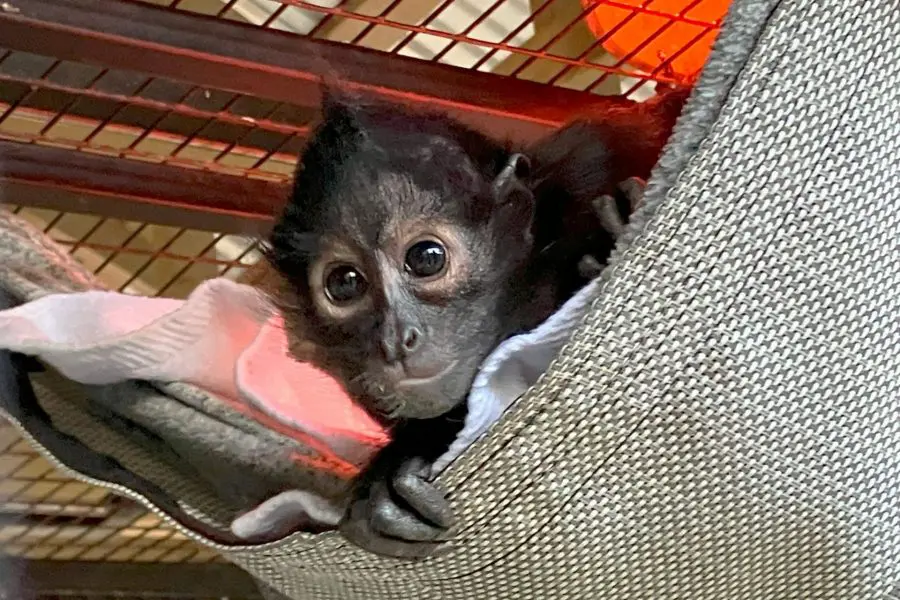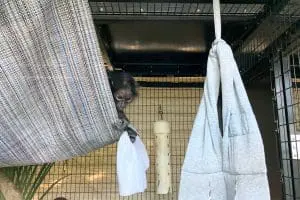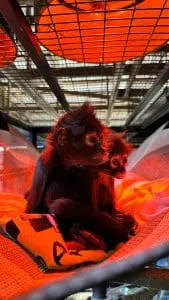

Finn, pictured here, is one of two black-handed spider monkey infants who call our Zoo home for now.
Two confiscated black-handed spider monkey infants are calling our Zoo home for now.
The male and female monkeys were illegally brought into our state and found in the illegal possession of someone who didn’t have necessary permits to own this species, according to the Florida Fish and Wildlife Conservation Commission. Their origins and the location of their parents are unknown at this time.
Our Zoo was asked to care for them because of our unique and flexible three-habitat spider monkey complex and experience caring for young monkeys separated from their parents. Two members of our current troop, Mateo and J, came to us at a young age as wildlife trafficking victims.

Meet black-handed spider monkey Marceline.
The male monkey, named Finn by his quarantine keepers for now, is estimated to be about 6 months old. The female monkey, named Marceline also by her quarantine keepers, is estimated to be about 3 months old. They’re too young to be returned to their natural range.
Neither had any critical medical issues when they first came to us in mid-December besides some parasites they’re being treated for, according to director of animal programs Lauren Hinson. They are underweight but eating well – and getting used to vegetables.
Marceline and Finn are living in a separate habitat near the rest of our spider monkey troop. While they seem attached to people, this attachment is reduced by having each other and living near the troop.
 The eventual plan is for Finn and Marceline to move to another zoo, but this could take months or years. Our animal care team is fully prepared to acclimate them into our troop, Lauren said. Our animal registrar team has started training them in behaviors that will help with their care at our Zoo and their eventual home, like voluntarily climbing onto a weight scale.
The eventual plan is for Finn and Marceline to move to another zoo, but this could take months or years. Our animal care team is fully prepared to acclimate them into our troop, Lauren said. Our animal registrar team has started training them in behaviors that will help with their care at our Zoo and their eventual home, like voluntarily climbing onto a weight scale.
As a facility accredited by the Association of Zoos and Aquariums, we’ve let the Species Survival Plan (SSP) program know these two young monkeys are in need of placement. SSPs ensure healthy, genetically diverse populations of animals in AZA zoos.
Unfortunately, there are a number of confiscated young spider monkey in zoos across the U.S.
While we don’t know the exact circumstances that brought Finn and Marceline to our state, we want to note that vulnerable wildlife is trafficked every day around the world – including here in Florida – for the illegal pet trade.
Black-handed spider monkeys do not make good pets, but there are some important things to consider before choosing any animal for a pet. Be sure to understand where the pet came from and never take an animal from its natural home. If you don’t know where the pet came from, find another source to ensure we work together to stop the illegal pet trade of the animals we all love.
Brevard Zoo is an independent, not-for-profit organization that receives no recurring government funding for our operating costs. Your generous support enables us to continue to serve our community and continue our vital animal wellness, education and conservation programs.
